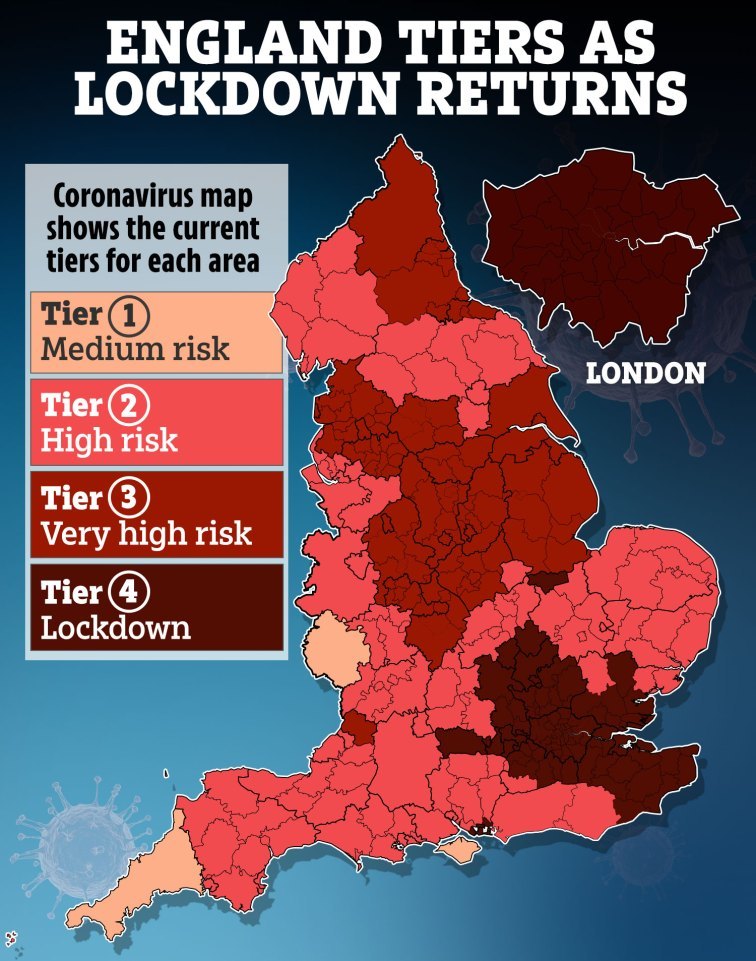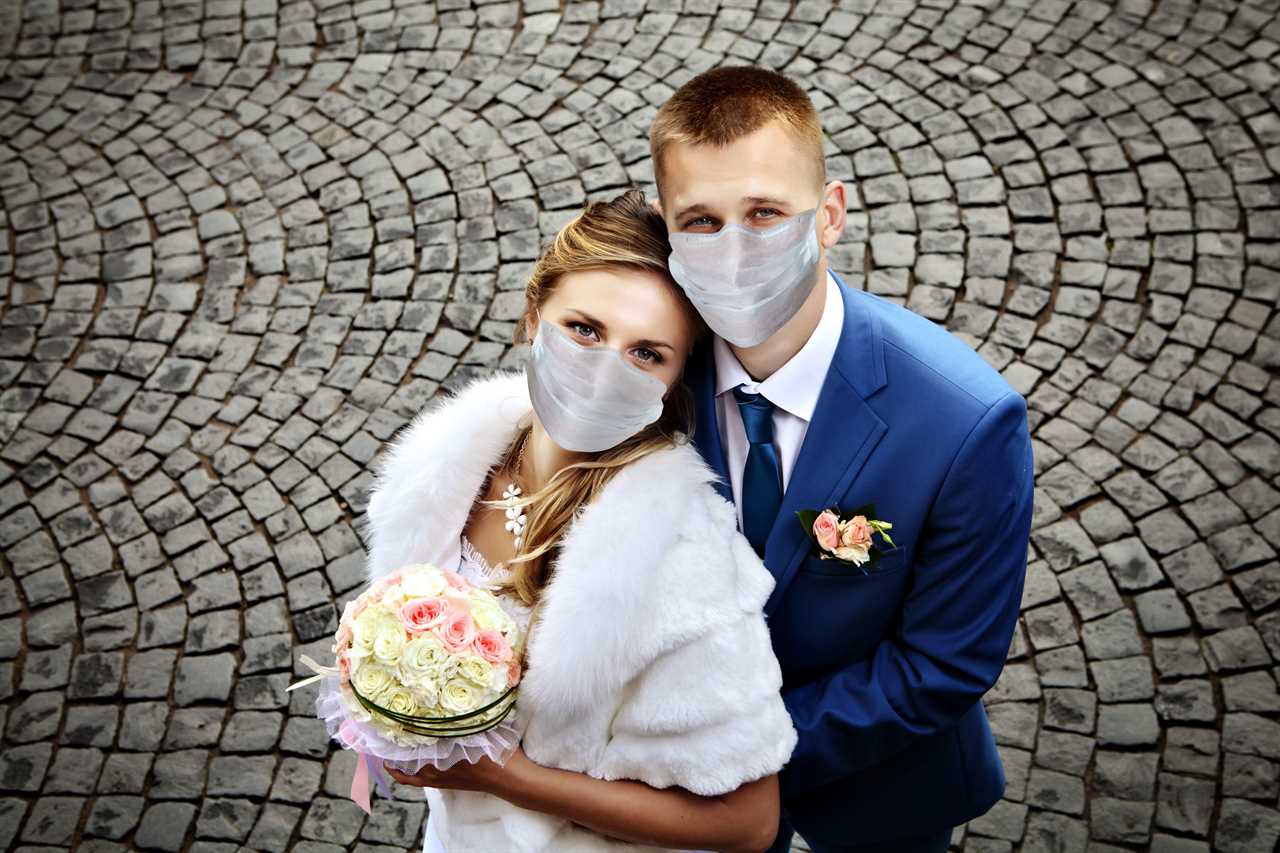MILLIONS of people in England have been thrust into the tough new Tier 4 of Covid-19 restrictions in a bid to halt a concerning rise in coronavirus cases.
But while Christmas has been trashed by the strict coronavirus rules, what about weddings?

Weddings are now banned in London and the South East, with a few exceptions
Are weddings allowed in Tier 4?
Boris Johnson has announced the changes as part of the Government’s drive to tackle a rise in coronavirus infections after a mutant strain of Covid-19 began ripping through the south of England.
London and the South East and parts of East England are affected.
But these tough restrictions means thousands of couples who have either pinned their hopes on a Christmas wedding or had already been forced to postpone their nuptials during previous lockdowns must now reschedule yet again.
Most are banned in London and the South East under the new Tier 4 rules — except if there are “exceptional circumstances”.
The rules came into force on December 20.
What are the rules on weddings in Tier 4?
Some weddings can go ahead, but only in strict circumstances.
For example where one of those getting married is seriously ill and not expected to recover in what is known as a “deathbed wedding”.
Another scenario is where one or both are due to undergo debilitating treatment or life-changing surgery.
But only six people can attend.
If you live outside a Tier 4 area and are going there for a wedding you must comply with these gathering limits.

How can I cancel my wedding?
If you feel your day will be too different from what you wanted, it is generally better to postpone rather than cancel.
Check alternative dates with your venue, and see if your suppliers can switch too.
Just be aware that you may be charged extra as some days are more popular than others, and you’ll typically have to pay any difference in price.
If your postponed date works out cheaper, check with your venue whether you’ll be refunded the difference before agreeing to it.
If it isn’t possible to postpone and you decide to cancel, keep in mind you may lose any fees already paid.
Your contract will include the terms and conditions and should spell out any cancellation charges, which could affect your refund.
But even if you cancel a wedding that could’ve gone ahead, watchdog the Competition and Markets Authority (CMA) says you shouldn’t face “disproportionately high charges” for ending the contract.
Terms and conditions stating no refund is available or that a customer must pay in full if they cancel, without taking into account the business’ savings for not having to provide the wedding, or being able to use the date for another wedding, could be unfair and unenforceable, the CMA said.
Any amounts that a business can keep under the contract must also reflect what it’s actually losing due to the cancellation, and it has to justify this.
If you’ve got insurance for your wedding or civil partnership registration, it’s worth checking the terms and conditions to see what’s covered.
And if your wedding couldn’t go ahead due to lockdown restrictions, you should be given a refund for money already paid.
If you’ve complained to your wedding provider but don’t get anywhere, you can report it to the CMA using this online form.
Just bear in mind the CMA is not an ombudsman, so it won’t rule on your individual case.
However, if it receives a number of complaints about the same firms from different people, it may use that as the basis to take action.
Consumers can also make a complaint via the free online tool Resolver.

2020 has been the worst year since WW2 for weddings, and 2021 looks like as bleak as the last









